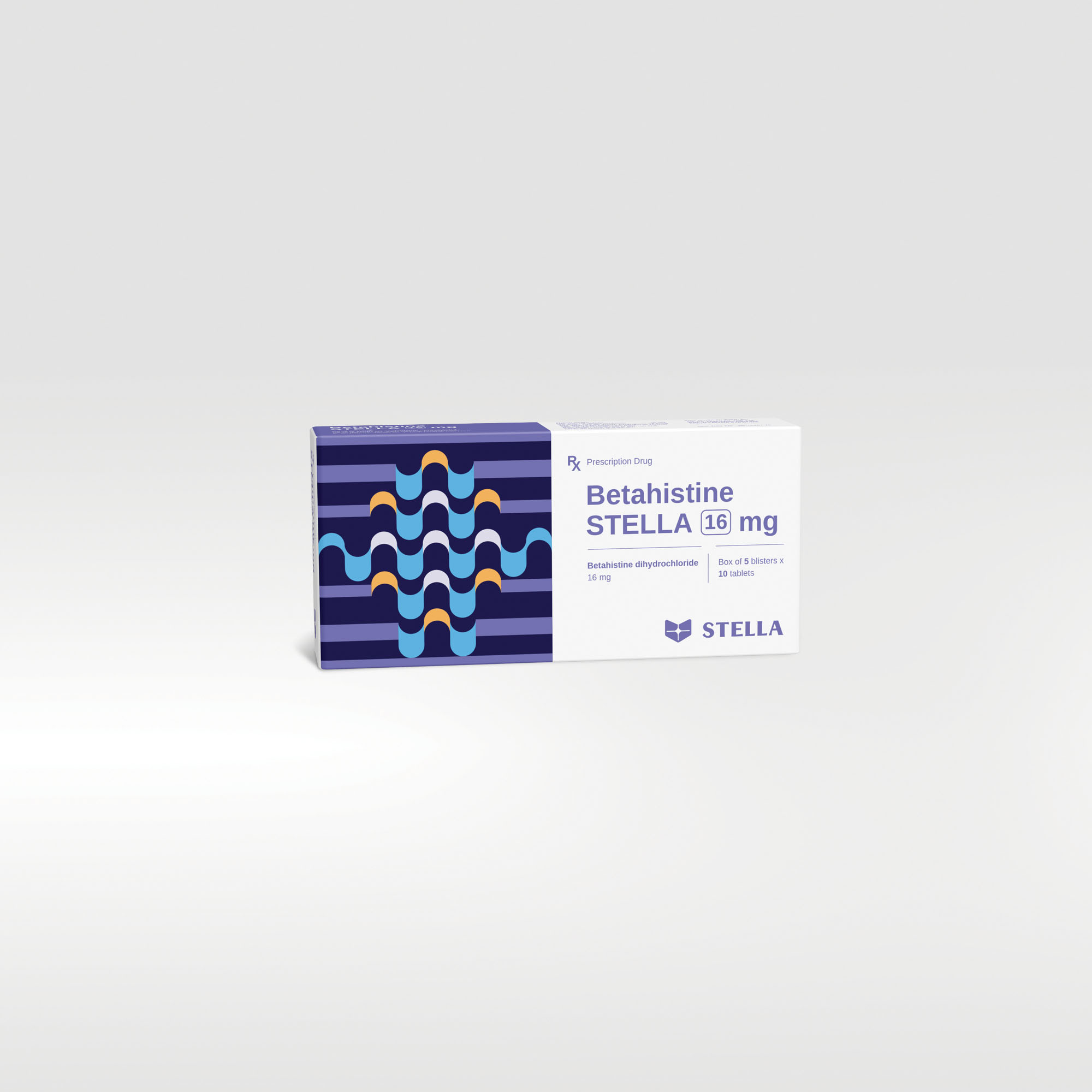Betahistine STELLA 16 mg Rx
Betahistine STELLA 16 mg contains betahistine that has a very strong affinity as an antagonist for histamine H3 receptors, a weak affinity as an agonist for histamine H1. Betahistine is indicated for treatment of Ménière’s syndrome, symptoms of which may include vertigo, tinnitus, hearing loss and nausea.
| Pack size | Box of 30 tablets, 50 tablets, 100 tablets |
| Shelf-life | 36 months |
| Composition | Betahistine dihydrochloride |
| Dosage forms and strengths | Tablet: 16 mg |



